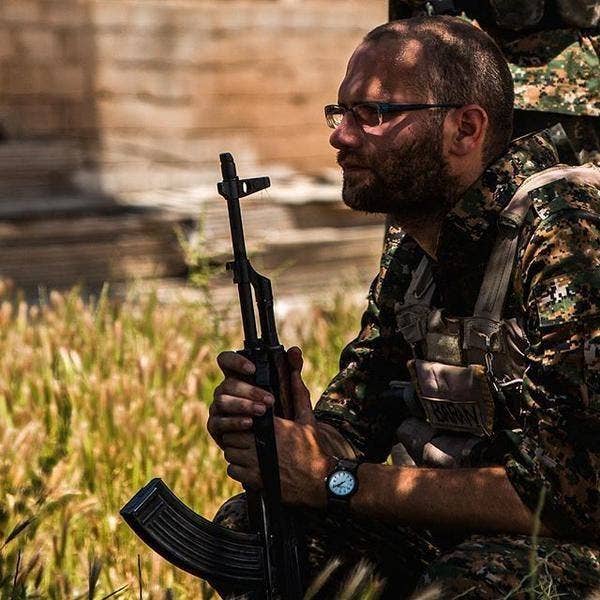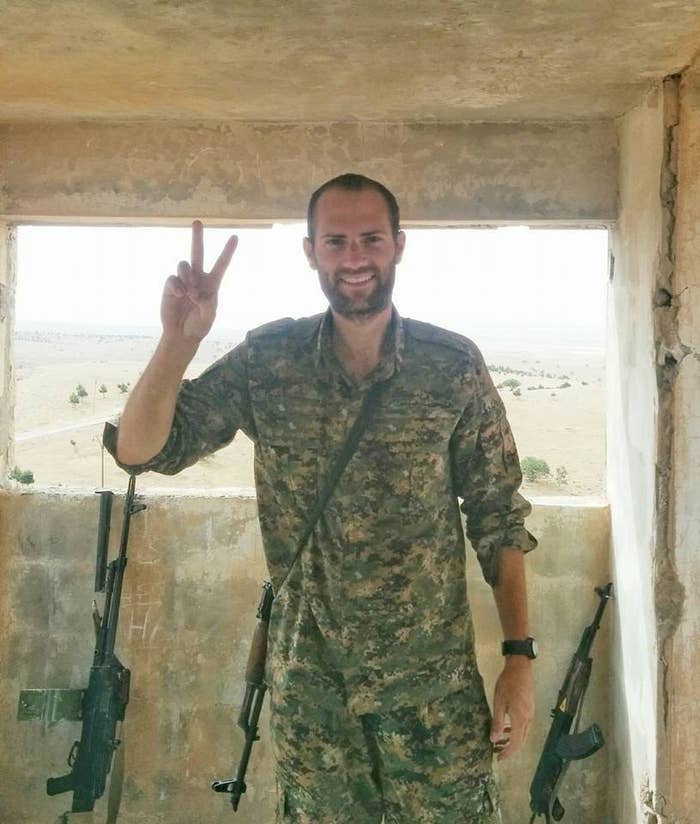University College London's student union is under fire for not allowing a former student to come to the campus and talk about his experiences fighting in Syria.

"Macer Gifford" (not his real name), 28, spent five months fighting with Kurdish 'People's Protection Units' (YPG) forces earlier this year. He had been invited by the university's Kurdish society to talk about his experiences fighting in Iraq, and to describe the situation faced by civilians in the war-torn country.
According to UCL Kurdish society president Kavar Kurda, the event was to focus on the various Kurdish militias fighting against ISIS and feature an academic from the London School of Economics.
However, Kurda said, the university union, UCLU, revoked Gifford's invitation to speak due to fears that other students could be inspired to join a militia group. The event was ultimately cancelled.
"The event was made in order to give people an insight on how it is on the frontlines, how despicable ISIS really are, etc, and give an academic analysis on the conflict," Kurda told BuzzFeed News. "We wanted to enlighten people and show how serious this conflict is."
Kurda said Gifford was not a threat, citing speeches he has given to the BBC and to parliament.
"The event would never have encouraged anyone to fight," he said. "Provisions were set. This is an academic institution, not a recruitment centre. ... The union said they don't take sides, yet union members have been seen in support of the Palestinian cause and against the Assad regime."

UCLU defended its decision not to invite Gifford to speak on the campus.
A UCLU spokesperson said: "After consultation with UCL, the UCLU Activities and Events Officer and UCLU Chief Executive Officer, UCLU has decided not to approve your speaker because there are concerns that an event with a person speaking about their experiences fighting in Syria could lead to others going and fighting in the conflict, UCLU feels this is not an appropriate message to be given on a University Campus at this time."
In a statement, UCLU's activity and events officer, Asad Khan, said he had spoken to Kurda, and that the union treated every militia, regardless of its orientation, in the same way.
"I drew a similarity between Hamas, Hezbollah and YPG to illustrate that they are all militias rather than internationally recognised armies," Khan said. "This was a concern to UCLU and the university in case people hearing this speaker would themselves be encouraged to go and fight in Syria."
More than 800 Britons are said to have travelled to Iraq and Syria to fight since 2012. While most have joined groups such as ISIS, a small number of Britons have opted to join Kurdish militias to fight ISIS.
Although the British government advises against all travel to Syria and Iraq to fight, the YPG is not a proscribed group.
"The UK advises against all travel to Syria and parts of Iraq," a Foreign Office spokesperson said in a statement. "Anyone who does travel to these areas, for whatever reason, is putting themselves in considerable danger."
CORRECTION
Gifford had been with Kurdish People's Protection Units, known as the YPG. An earlier version of this story misstated that Gifford had been fighting with Peshmerga forces in Iraq and Syria.
